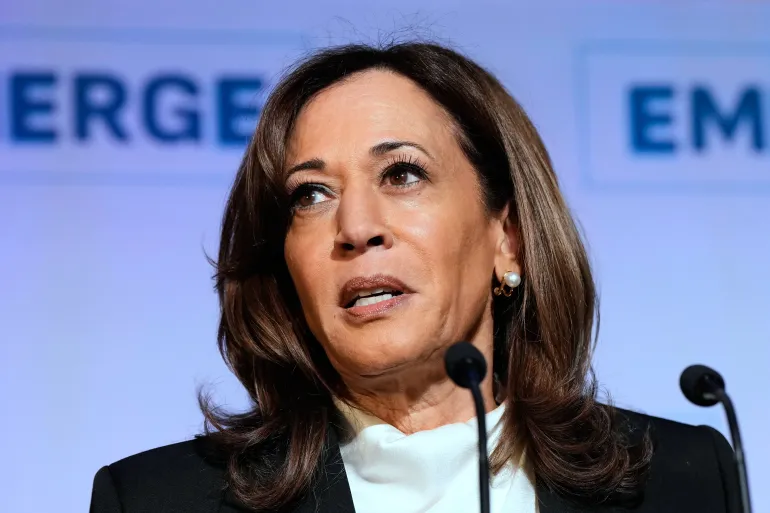Donald Trump has revoked Secret Service protection for Kamala Harris, his political rival, in a move that raises security fears as the U.S. faces heightened risks of political violence.

In a stunning political decision, Donald Trump has revoked the Secret Service detail for his leading opponent, Kamala Harris. The move comes at a moment when the spectre of political violence looms large over the United States, with Trump himself having already faced two campaign assassination attempts in recent months.
A Break With Tradition
Traditionally, Secret Service protection is provided to major party candidates and key political leaders, regardless of partisan divisions. By revoking Harris’s detail, Trump has broken with long-standing security norms. Critics warn that this decision could place Harris in grave danger, especially as political tensions and violent rhetoric surge across the country.
Former security officials have described the move as “unprecedented and reckless,” noting that withdrawing protection from a high-profile figure like Harris leaves her vulnerable at a time when domestic extremism is on the rise.
Political Tensions at Boiling Point
The U.S. is currently experiencing one of its most polarized political climates in modern history. The two assassination attempts against Trump highlight how security risks are no longer abstract but immediate and real.
For Harris, who remains one of Trump’s strongest challengers, the revocation of protection is seen by Democrats as a deliberate attempt to weaken her safety and political standing. Allies argue that this decision could embolden extremists who view the removal of Secret Service coverage as an opportunity.
National Security and Ethical Questions
The Secret Service operates as an apolitical institution. Its mission is to safeguard the nation’s leaders and preserve the continuity of government. By politicizing its protection protocols, Trump risks undermining both the integrity of the agency and public trust in the fairness of U.S. security policy.
Legal scholars have raised questions about whether a sitting president has the unilateral authority to revoke protection for an opponent. Some suggest the move could face court challenges, with potential arguments that it violates principles of equal protection and democratic fairness.
The Global Dimension
The revocation has also sparked concerns abroad. International observers note that the U.S., long regarded as a beacon of democracy, now faces accusations of eroding democratic safeguards. In Europe and Asia, analysts warn that such actions could set a troubling precedent where political leaders weaponize state security for partisan gain.
This move may also affect America’s image at a time when geopolitical rivals, including Russia and China, are closely monitoring the strength—or fragility—of U.S. institutions.
The Harris Campaign Response
Harris’s campaign has responded swiftly, condemning the decision as a “blatant act of political retaliation.” Her team insists that she will continue campaigning but has already begun exploring private security options to fill the protection gap left by the Secret Service.
Privately, campaign insiders fear that this development could restrict Harris’s ability to hold large public events, limiting her capacity to mobilize supporters and counter Trump’s political momentum.
A Dangerous Precedent
Ultimately, the decision to revoke Kamala Harris’s Secret Service detail sets a dangerous precedent. If left unchallenged, future leaders may see security as a political bargaining chip rather than a constitutional obligation.
As the 2024 U.S. election cycle intensifies, this controversy highlights how fragile the guardrails of democracy have become. The question now is whether institutions, courts, and the public will accept this new reality—or push back to preserve the nonpartisan foundations of national security.












Comments are closed.